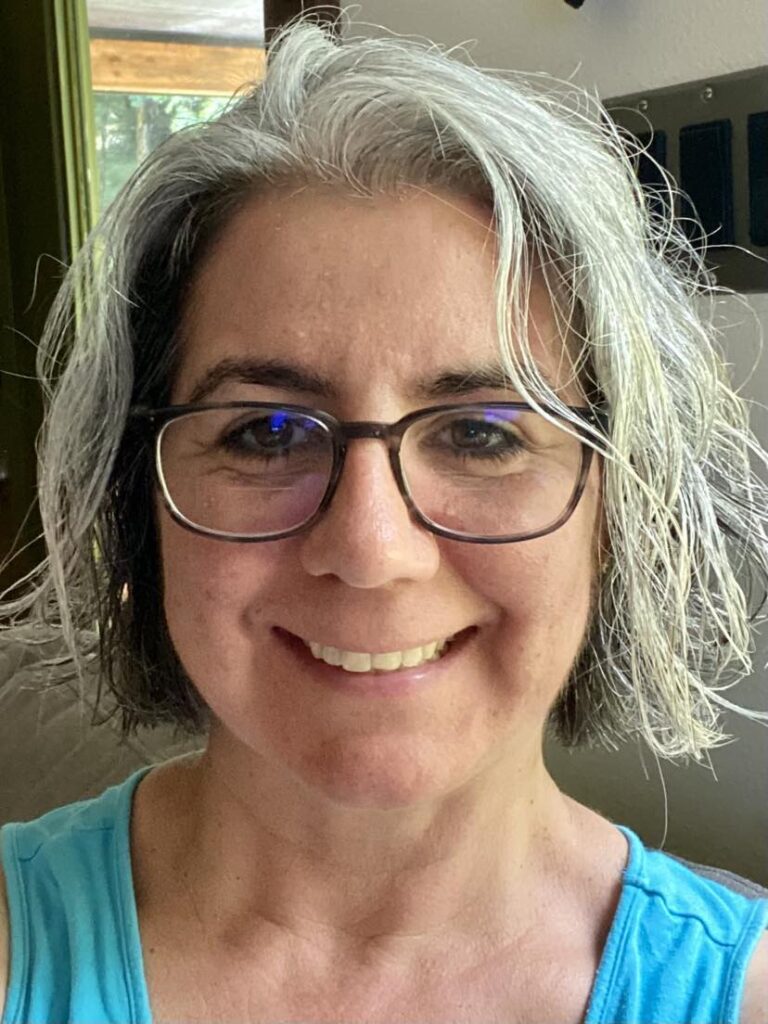By Kara Rubinstein Deyerin
Without having your whole story, you cannot have autonomy. Autonomy and decision-making go hand-in-hand. Autonomy, the ability to act independently and make choices based on one’s own judgment, relies on having a comprehensive understanding of the context and factors at play. If you do not know your true origin story, your ability to exercise true autonomy becomes limited or compromised. A fragmented or partial view of who you are may lead to misinterpretations, ill-informed decisions, and potential consequences that could have been avoided if you’d had the truth.
Barbie is a perfect example of how lack of information about the fundamental building blocks of your life and who you are can lead to an identity crisis when you discover the truth. Note to the reader: if you haven’t seen the movie, know that there are spoilers here. I highly recommend you see the movie and then read this article. Even if you don’t come back to read this, go see the movie.
Barbie lives in a world based on a fundamental lie—the belief that the Barbies have solved women’s equality problems in the real world. Because Barbie is a female president, doctor, physicist, and more, she believes women in the real world have this level of power too. How Barbie sees her world and herself and how she interacts with her friends and Ken is based on this being true. When she learns the real world is very different, it throws her relationships and her sense of identity into disarray.
People often have a difficult time understanding what the big deal is when someone has a DNA surprise and they discover that one or both of their parents aren’t genetically related to them. “What’s the big deal? You’re still you?” they’re often asked. The Barbie movie is a perfect example of “what’s the big deal.” Once Barbie’s fundamental truth about who she is toppled, she has an existential crisis. She’s forced to confront the fundamental purpose, meaning, and essence of her life and her own existence.
Perhaps through Barbie you can understand the aftershocks caused by a DNA surprise: how one sees oneself and their place in the world is no longer the same. Five years ago, after spitting in a tube, I learned I wasn’t genetically related to the man I thought was my father. I’d wanted to learn where in Africa his family came from. What I discovered was I had zero African DNA and was half Jewish instead. Everything about my life and who I was had been based on a lie. Enter an existential crisis that at times I still revisit.
When you have a DNA surprise, you are untethered from your past and sense of self. Your ethnicity might be significantly different, like mine. You can feel like an imposter in the culture and family you grew up in and also in your new culture and family. Your medical history is different, so how you’ve been caring for yourself may not be appropriate for your health anymore. This can be an awkward conversation with your doctor, and your kid’s doctor.
Your familial relationships are not the same. You have new family who may or may not want to meet you. And some of the family you grew up with may decide that because you aren’t blood you’re no longer family. How you see and interpret your past interactions with your family and the world is no longer true. You find yourself editing your memories in light of this new information. Even how you see yourself in the mirror is different.
At one point, after Barbie learns the truth, she wonders if she’s still pretty. Her looks haven’t changed but the lens through which she sees herself has. I recently told a good friend that even after five years, I am still surprised by who I see in the mirror. After explaining it wasn’t because 50 is approaching but because I grew up seeing myself as multiethnic—my lens was a woman with a European mom and an African dad. Those glasses were shattered by my DNA test. My new lens now sees a Jewish woman. My nose, my eyes, my smile—they’re all very different. Even now, after therapy and years of rebuilding my sense of identity, it can be disorienting.
With Barbie’s new information about her world and who she is, she must rebuild her sense of self and how she wants to be viewed in the world. She has an identity crisis. Ironically, this term was coined by psychologist Erik Erikson when he discovered in early adulthood that the man he thought was his father was, in fact, not his genetic father. This revelation had a profound impact on his sense of identity and led him to question his true origins, cultural background, and place in the world and of course to study the topic. Enter “identity crisis” into the lexicon.
Barbie is given a choice—whether or not to go back to how things were before, even a better improved version without the lies. She decides she cannot return to her old life. After the veil is lifted, most people can’t or don’t want to pull it back down. In fact, according to a survey of 605 individuals from Facebook misattributed parentage support groups, published in the Journal of Family History, 92% of those who’ve had a DNA surprise would not prefer to have never known the truth. As you’d expect, shock is the first word people use to describe learning their foundation isn’t what they thought, but the next strongest feeling is a better understanding of who they are.
I know Barbie felt this way too as she chose to move to the real world. Her first act of real autonomy—visiting her gynecologist. We must have access to the truth about our origins from birth. People have the right to their full story to develop a sense of self and their place in the world based on true information. You cannot have really autonomy if your life is based on lie.
The next time someone tells me they don’t understand why my DNA surprise rocked my world, I’m going to tell them to watch Barbie. If they can understand why it was impossible for Barbie to go back to who she was before, maybe they can understand why I can’t either.
Kara Rubinstein Deyerin is a non-practicing attorney and passionate advocate with almost a decade of dedicated nonprofit work. Her personal journey and professional expertise have positioned her as a prominent voice in the realm of DNA surprises, genetic identity and continuity, misattributed parentage, adoption, assisted reproduction, and non-paternal events (NPE). In 2018, her life took an unexpected turn when an over-the-counter DNA test revealed that she had zero African DNA and was half Jewish, which meant the man on her birth certificate could not be her genetic parent. This life-altering discovery sent Deyerin on an emotional rollercoaster, causing a profound loss of her assumed ethnic identity and leading her to question her roots and sense of self. Because there were few resources for people with misattributed parentage and a lack of legal rights, she co-founded Right to Know. She’s appeared on many podcasts, in multiple television interviews and articles, and is a frequent speaker and writer on her DNA surprise, the right to know, and the complex intersection of genetic information, identity, and family dynamics. Her dedication to empowering others and fostering societal understanding of these issues has made her a leading advocate for genetic identity rights and a powerful force in promoting truth and transparency in family building.





